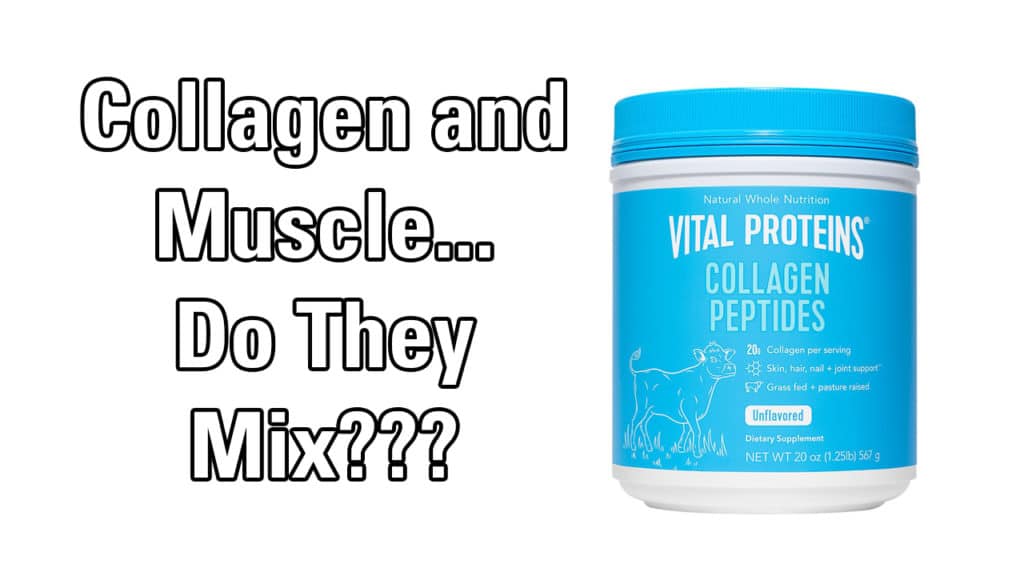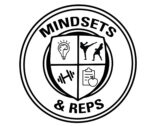
Collagen protein powder supplements are gaining recognition for their potential benefits on skin, joint, and connective tissue health. Seeing as it is a protein supplement, many users may automatically assume it translates as a viable post workout option.
But is collagen protein a good option to build muscle?
Collagen protein is not a quality protein supplement if the goal is to build muscle. Collagen lacks the amino acid leucine, which is needed to elevate protein synthesis and drive muscle growth.
How Protein Supplements Build Muscle
Protein synthesis is often a misunderstood concept. The body is constantly going through two separate processes, protein synthesis (building of proteins) and protein degradation (breakdown of proteins). It is not as if one starts while the other one stops; they both occur simultaneously at different rates.
If your goal is to build muscle, obviously you want your rate of protein synthesis to greatly exceed your rate of protein breakdown. One amino acid in particular, Leucine, is critical for protein synthesis. It is suggested that each meal you consume contain approximately three grams of Leucine if your goal is to build and repair muscle.
Amino Acid Profiles
When protein is digested, it breaks down into individual amino acids. Different amino acids perform different functions, but generally speaking these amino acids will be rebuilt into new proteins in the body after digestion. There are about 20 different amino acids in total. Of the 20 amino acids, nine are considered “essential” which means the body cannot synthesize them on its own. As a result, you have to get them from your diet. A “complete protein” is a food that contains all nine essential amino acids (EAAs).
Every food and/or supplement you consume will have different amounts of these amino acids, called its amino acid profile. A good rule of thumb is to eat a diet containing a variety of complete protein sources, like chicken, beef, fish, and dairy. This ensures you’re getting adequate amounts of all nine EAAs.
Collagen’s Protein Quality
Where does collagen protein fit into all of this? Collagen powder supplements actually contain eight of the nine essential amino acids (tryptophan is the only one it does not contain). So while it’s not a complete protein, it’s pretty close. The problem is that despite its relatively promising diversity of amino acids, the amounts leave much to be desired. A serving of collagen protein contains only 0.52g of Leucine, way less than the 3.0g needed.
What if you just took a ton of collagen until you reached a sufficient level of Leucine? Collagen protein is proportionally higher in three amino acids; Glycine, Proline, and Hydroxyproline. This is what makes it unique compared to other proteins. The problem is that if you took a ton of collagen protein consistently, it would cause an imbalance of amino acids in the body. Basically, you would have a disproportionate amount of Glycine, Proline, and Hydroxyproline in your blood amino acid pool. This pool acts as a reserve to build new proteins and is supposed to have a balanced variety of amino acids. Overconsumption of a protein source like collagen could dilute this pool.
As a standalone supplement, collagen is not a great choice to consume after a workout. You would have to combine it with something like whey protein to make it a more complete option.
Collagen’s Other Benefits
Let’s be honest, despite the title of this article most people probably aren’t taking collagen for the sole purpose of building muscle. What about its other proposed benefits on skin, joint, and connective tissue health?
Joint, ligament, and tendon health is a more polarizing subject. Quality research is limited and conflicting. Advocates for collagen protein suggest that the protein must be loaded (multiple servings initially followed by maintenance doses afterward) and stacked with Vitamin C for better absorption when looking to improve connective tissue health. Going back to our discussion on amino acid imbalances however, you would have to make sure your diet contains a variety of complete protein sources if you’re going to be loading with collagen.
Final Notes
Given its price point and limited definitive research, it’s hard to recommend collagen protein as a must have supplement in your arsenal. However, if you have the disposable income and want to be proactive about connective tissue health (or just look pretty), I’d have no issue if you decided to buy it. The top brand in my opinion is Vital Proteins, as it has a full amino acid profile on the bottle and thus no secrets.
Generally speaking, protein is a major factor for not only body composition but overall health. Whether or not someone thinks collagen is worth the price is one thing, but in the end it is a protein and no one can fault you for adding protein to your diet.
If you have a whey protein allergy or intolerance and are looking for other options, check out my article on whey protein alternatives.
